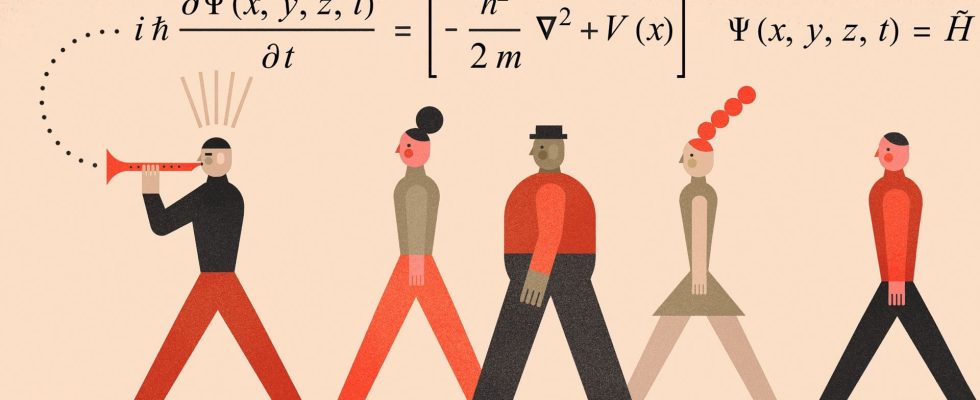After the “quantum” cream, the master? Paul Valéry University, in Montpellier, has been in turmoil since Wednesday. At issue: one of their master’s degrees in human sciences claims to have a “quantum” educational approach. Enough to leave scientists speechless: the term only applies to elementary particles, such as electrons or photons.
So what does this notion of physics do in a very serious education science diploma, recognized by the State? Unless we reduce the dozen or so human resources employees who take these courses each year to dust, it is impossible to refer to this area of research. Unearthed by a YouTuber specializing in these subjects, G Milgram, the brochure for this master’s degree continues to circulate on social networks.
Several scientists have publicly challenged the university and its communicator, Fabrice Chomarat. Among them, influential names, such as the physicist Etienne Klein, the doctor Jerome Barriere, member of the Scientific Council of the French Cancer Society, or critical researcher Lonni Besançon. In the middle of the holidays, the infrastructure had to put itself on war footing to respond to the “bad buzz”.
The ire of scientists
The case is reminiscent of another. Last January, the cosmetic company Guerlain also used the word “quantum” in the wrong way to sell one of its creams. This could have restored light to the skin, thanks to quantum effects, it was suggested. A common shift: since the discovery of the quantum properties of matter in the last century, beliefs about this science have continued to emerge, over time, as L’Express has shown.
Questioned by L’Express, the head of the master’s degree, which has existed since 2011, replied that she simply wanted to clarify the “philosophy” into which her courses are based. “My master’s degree is not quantum. But it is inspired by the latest research on the brain. It demonstrates that quantum effects occur during neuronal processes. These mechanisms are also the basis of mindfulness, which I teach in my classes. And added: “The tools I use refer to this dimension, everything is intricate.”
The controversy would be reduced, according to the teacher, to a war of wars, over who can use the terms of quantum physics, these so-called “entangled”, “superimposed” states very specific to this field. A controversial position to say the least: yes, some researchers study the quantum phenomena of living particles. But nothing to help us think, or manage. And for good reason: several scientists, including 2022 Nobel Prize winner Alain Aspect, have shown that so-called “quantum” effects disappear when matter is not isolated.
Pseudoscientific theories of vibration rate
The associations between quantum phenomena and the world around us are therefore, in essence, all misleading. And are often found in pseudoscientific theories and deviations. So much so that in 2021, the word appeared in the report of the Miviludes, the interministerial mission to combat this matter. A language, which when used for questions other than particle science “gives an illusion of seriousness to imprecise content and not free from amateurism”, it is written.
The Montpellier master’s degree also aims to train in “vibrational” leadership. “Words have a negative or positive vibratory emotional charge, even if we do not have the tools to measure it”, explains the director of the master’s degree to L’Express, suggesting that they would modify our “frequencies”. References to pseudoscientific theories of vibration rate, according to which our moods, our gestures or our thoughts modify our “frequencies”. False interpretations, also associated with abuses, and cited by Miviludes.
On this aspect, the manager, a doctor in neuropsychology, says she uses these “notions” to refer to the skills of her course: emotional management in a professional situation, empathy, kindness, the work of the ego in the context of a relationship of authority, etc. Soft skills that she also transmits as part of an annual internship in a Buddhist center, the Lérab Ling affiliated with the Nyingmapa school, a branch of the religion focused on esotericism and tantrism.
So many deviations from rigor raise questions. How have these pseudoscientific beliefs been able to persist for so long, at university, the place of production of knowledge? Especially since recognized master’s degrees must be validated internally, then by the general directorate of higher education. Neither these instances nor the High Council for Research and Higher Education, the institution that evaluates universities, did not flinch. The latter had however taken stock of the university in 2021. No mention was made there.
.
